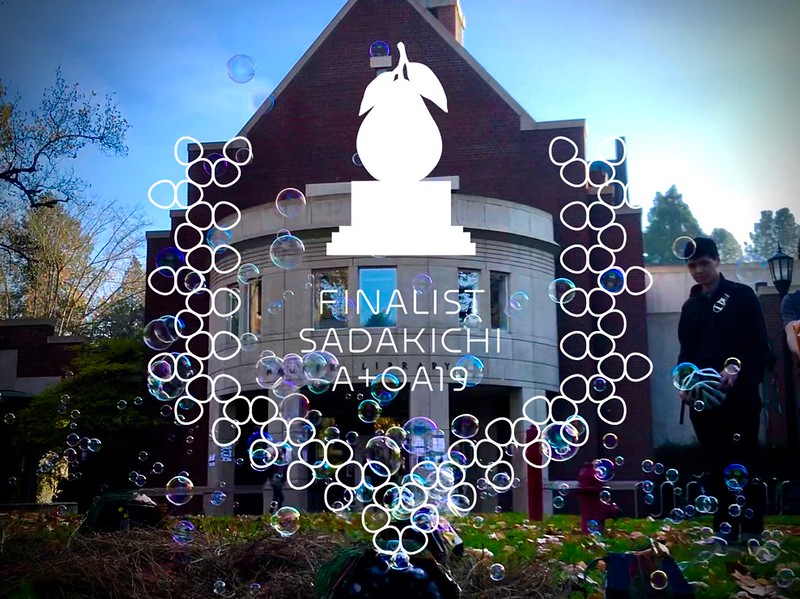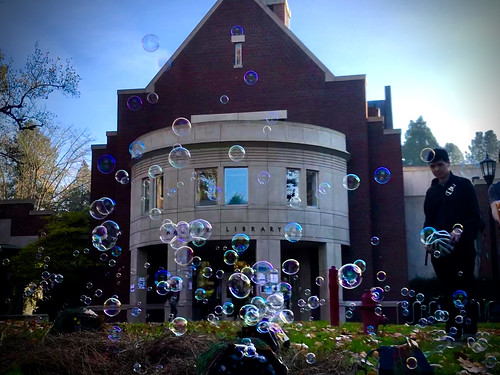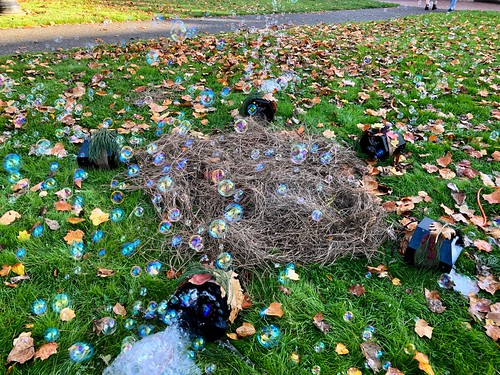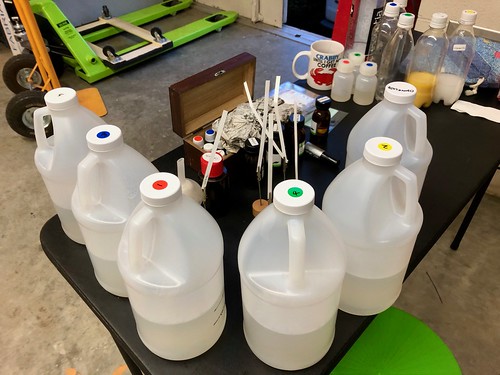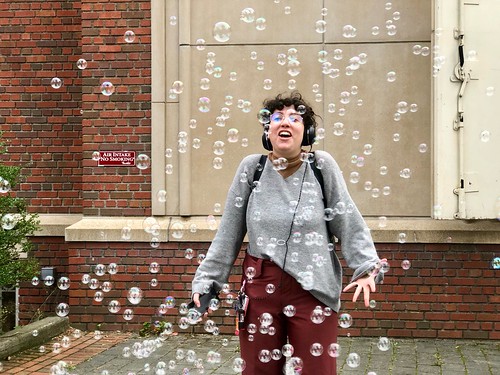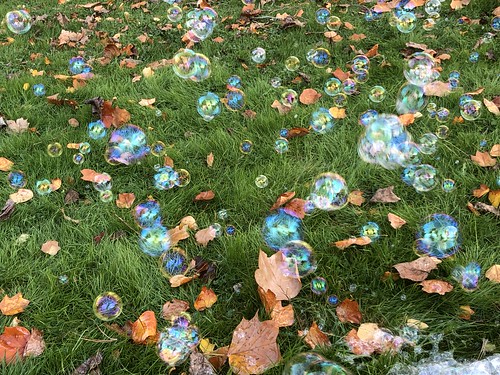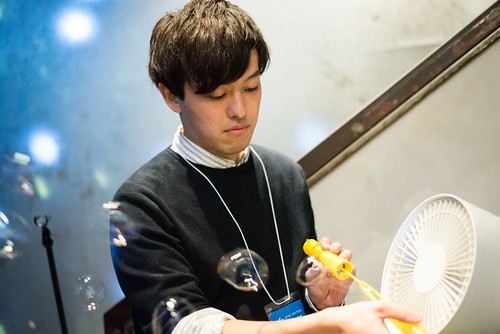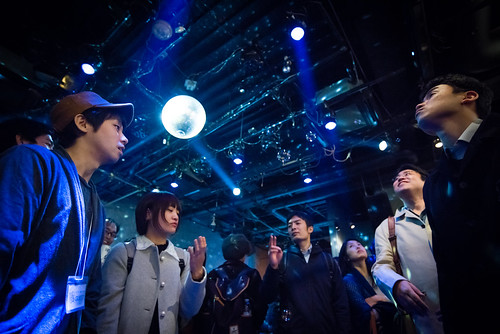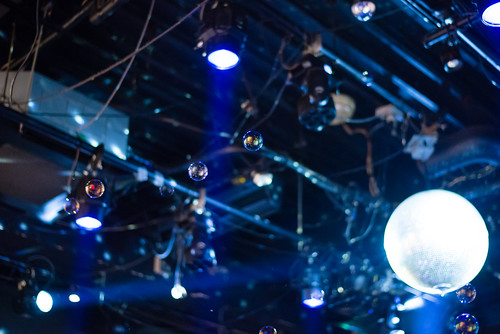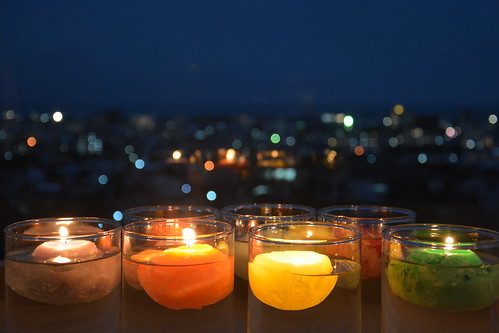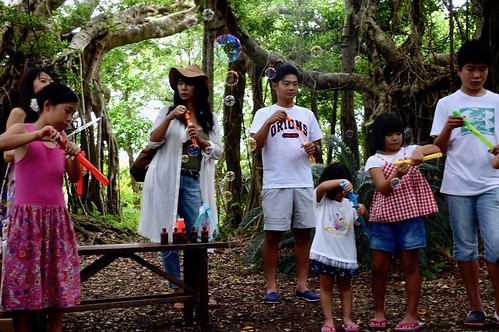installation in open air (2018)
Tangible Scents is a finalist for the Art and Olfaction Sadakichi Award for Experimental Work with Scent.
The Art and Olfaction Awards celebrate excellence in global independent and artisan perfumery, and experimental work with scent.
[venue] Reed Arts Week 2018 (Reed College), Portland, U.S.A
[curator] Aersen Lease, artistic director for the Reed Arts Week
[Premier] November 15th, 2018
"Tangible Scents" is an open-air installation which uses Maki Ueda's original method of “de-and re-construction in the air” to decode on the scent of rose. The five major components of the this scent are individually infused into vats of soap, which will each be poured into five different bubble machines. You can deconstruct rose into its component scents by poking the bubbles, or immerse yourself in the total scent.
Used Scents:
(1)Phenyl Ethyl Alcohol,
(2)Geraniol,
(3)Phenyl Acetic Acid,
(4)Rose Oxide
(5)Aldehyde C9
Since the late 2017 I’ve been questioning myself “how to make scents more tangible and understandable for audience?”.
I picked “rose” as a theme because it’s universal. There’s no “typical rose scent” but it’s very diverse, from the sweet one to the fresh one, and that fact tells us that “rose” is a concept.
I’ve been experimenting with different medium as candle, perfume, and soap bubbles on this theme. The form of incident varies from workshop to installation.
Tangible Scents is an installation in open air, created as a result of such experimentations. My method here is “de-and re-construction of the scent of rose“. By deconstructing the rose scent in components and then reconstructing them together in the air, its concept becomes more transparent and tangible for the audience.
Five scents, the major components of the scent of rose, are impregnated to soap bubble independently.
(1) Phenyl Ethyl Alcohol (fresh, sweet, floral, sake-like)
(2) Geraniol (fresh, watery, citrusy)
(3) Phenyl Acetic Acid (sour, floral)
(4) Rose Oxide (fresh, metalic)
(5) Aldehyde C9 (fatty, green, cucumber-like)
They are to be diffused with the machines independently.
- By the mixing nature of scent molecules, the field of “the smell of rose” is created, as if the composition is done in the space.
- By being poked, a bubble breaks, and it emits the scent. - You can clearly identify the scent, because the five scents are quite different.
- You can also immerse yourself in the flow of bubbles and just feel the rose.
- You can zoom-in and out with the olfaction.
- Timing is controlled with remote controllers.
- Concentration is adjusted by each scent. Key words:
- tangible scents
- composition in the space
- immersive olfactory experience
- zoom-in and out with olfaction - de- and reconstruction of the scent of rose
EXPERIMENT 1: MINI PERFORMANCE
[organizer] Nozomi Shirai / KYO-SHITSU https://www.ranagram.com/kyo-shitsu/
[venue] WOMB TOKYO
[date] November 2017
Used Scents:
(1) Phenyl Ethyl Alcohol
(2) Citronellol
EXPERIMENT 2: CANDLE INSTALLATION
[title] DECONSTRUCTING AND CONSTRUCTING THE SMELL "X"
[venue] ART HOTEL ISHIGAKI / BAR CAPRICORN
[curator] Tomoko Takamine
[premier] November 2017
Used Scents:
(1) phenyl ethyl alcohol / PINK
(2) geraniol / TURQUOISE BLUE
(3) citronellol / YELLOW
(4) linalool / ORANGE
(5) euginol / PURPLE
(6) rose oxide / WINE RED
(7) aldehyde C9 / GREEN
EXPERIMENT 3: WORKSHOP
[organizer] Hitoshi Watanabe (NPO Shima-no-Youchien)
[venue] Yachimun-kan, Ishigaki Isl.
[premier] August 2018
Used Scents:
(1) phenyl ethyl alcohol
(2) citronellol
(3) linalool
(4) rose oxide
(5) aldehyde C9

 English (UK)
English (UK)  日本語
日本語 